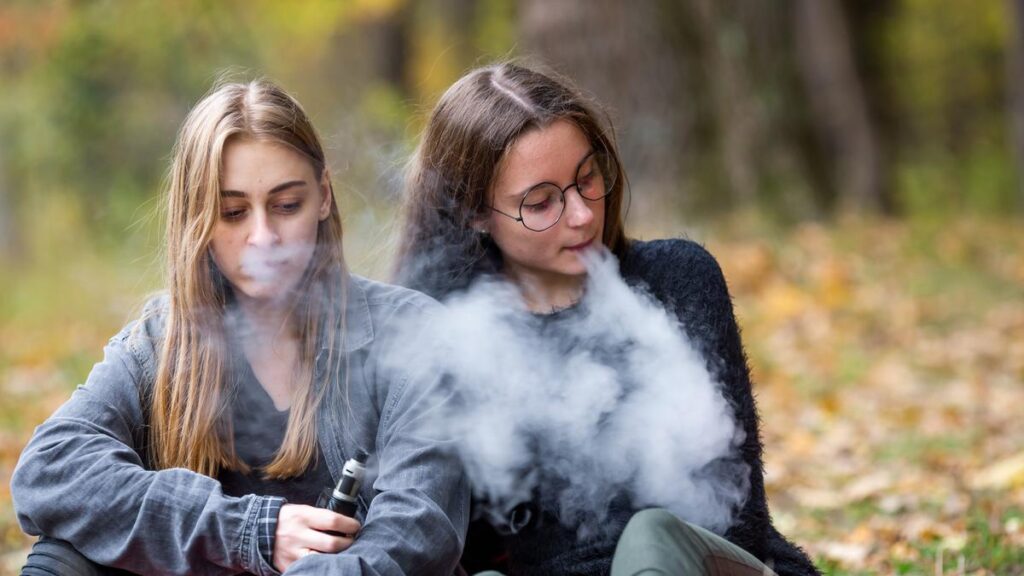
Vape lgbt teenagers. Bisexual lesbian young caucasian teenage girls in casual clothes vape electronic cigarette on the street in the park in the autumn evening. Bad habit.
The rise of vaping among young Australians is significantly impacting their mental health, according to recent findings. Despite the largely illegal status of many vaping products, the habit has proliferated, contributing to a worsening mental health crisis among this demographic.
A report from the Australian Institute of Health and Welfare (AIHW) released in April 2023 highlights the alarming trend, noting that approximately 25% of adolescents aged 14 to 17 regularly use e-cigarettes. This figure has nearly doubled in just two years, raising serious concerns for health officials and parents alike.
The mental health challenges faced by young Australians are becoming increasingly severe. The AIHW indicates that instances of anxiety and depression among adolescents have escalated, correlating with the rise in vaping. Many young people report using vapes as a coping mechanism, which can lead to a cycle of dependency and deteriorating mental health.
Vaping’s Role in Mental Health Deterioration
Research suggests that nicotine, a primary ingredient in many vape products, can exacerbate feelings of anxiety and stress. The addictive nature of nicotine places young users at risk of developing mental health disorders. According to the National Health Survey, mental health issues were reported by 13% of adolescents in 2021, a notable increase from previous years.
Health professionals in Queensland have raised alarms about this trend. Dr. Sarah Thompson, a child psychologist, emphasizes the urgent need for prevention strategies. “Vaping is not just a harmless trend; it has serious implications for mental health,” she stated. “We need to address this issue holistically, considering both the psychological and social factors involved.”
The consequences of this trend extend beyond individual health. Families are feeling the strain as they grapple with the emotional toll of their children’s vaping habits. Many parents report feeling powerless, unsure of how to combat the allure of vaping among their children.
Government Response and Future Implications
In response to the escalating crisis, the Australian government is reevaluating its approach to vaping regulations. New policies are expected to emphasize stricter enforcement of existing laws prohibiting the sale of vaping products to minors. However, experts warn that legislation alone may not be enough. Education and support initiatives will be crucial in addressing the underlying issues that drive young people to vape.
The AIHW’s findings underscore the need for a multi-faceted approach to tackle this growing problem. Community programs aimed at enhancing mental health awareness and providing resources for young people could play a vital role in reversing the trend.
As Australia continues to navigate the complexities of mental health and substance use among its youth, the focus remains on developing effective strategies that prioritize the well-being of young Australians. The intersection of vaping and mental health presents a unique challenge, but with concerted efforts, it is possible to foster a healthier future for the next generation.






